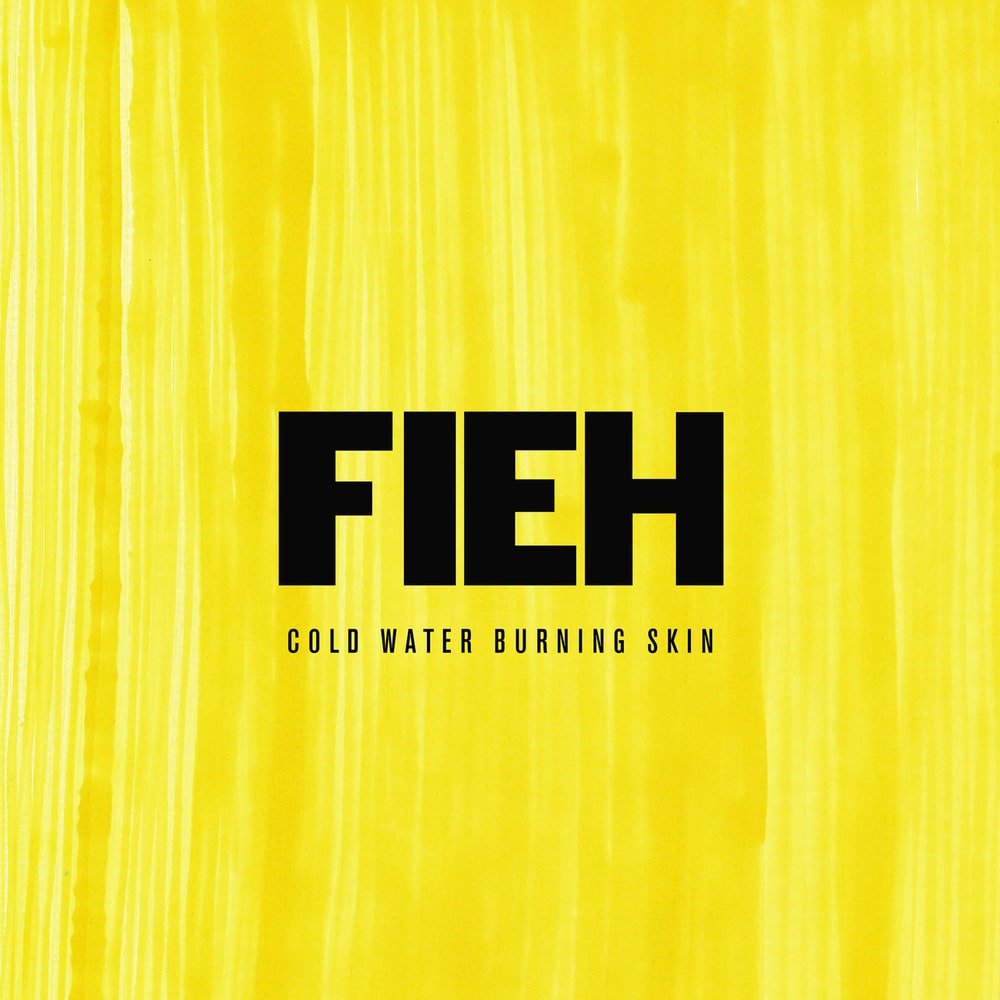It might be one of the least inspirational albums cover the year but the songs within Norwegian nine-piece Fieh’s debut record Cold Water Burning Skin are exciting and memorable. Best described as future soul, the Oslo-based group really employ their numerical advantage efficiently as songs contain multiple layers, eventful turns and an abundance of engaging instruments. As many of those instruments are given their own solo time to shine, from the trumpets on the title track ‘Cold Water Burning Skin’, to the flute on ‘So Fly’, to the keyboard effects that gives an unorthodox end to one of the poppiest singles ‘Flower’ and the tracks never sound overproduced, it really makes it easy to imagine seeing them live. Impulsively moving to their grooves and singing their lyrics in unison with others. Every track on this album has soul at its core but is presented with a left-field gloss that makes it constantly surprising and interesting.
Yet everything wouldn’t tie together without having the perfect voice and lyricist at the forefront. Sofie Tollefsbøl is crucial to Fieh. The band’s moniker comes from her name for starters. Her voice is just as flawless and versatile as the beats that surround her; going from silky smooth neo-soul in the vein of one of her self confessed heroines in Erykah Badu, to a rap styled with attitude.
The lyrics on Cold Water Burning Skin that are written by the lead vocalist don’t have a particular theme or concept behind them because they were written from over a period from 2013 to 2017, yet they are empowering, intriguing and target this generation well. ‘Glu’ talks about her 22-year old self fighting back after being pushed around by old male music executives: ” All these men can’t tell me what to do.” and while ’25’ is about Sofie’s stress at suddenly going from creating songs on GarageBand to suddenly being questioned about her music on a radio show, something about it sounds like an anthem for millennials though: “Stressing out is a full-time job. I am on it, baby. And it better pay off, ’cause yeah, you know. That I am on it, baby.”
Furthermore, ‘Doyuwanna’ has an interesting subject to present, as it seems to highlight the complications of mixed gender platonic friendships: “I started feeling we should be, guess that wasn’t very nice of me. The summer 1993. The moon, the air, a cold city was the magic, but I told you don’t touch. And ever since that day, my love, you haven’t been saying too much.”
There are similarities with Australian future-soul group Hiatus Kaiyote. It comes from both of the groups’ freedom at mixing woozy electronics with rhythmic soul but also an enthusiasm for surreal out-of-this-world lyrics: “you were feeling so mercury. Make it be, you know how I feel /Now those days are over. I will not forget. You told me something Jupiter ” from ‘Bluspaceberry’ and an affinity for Asian subjects, as heard in the first two tracks ‘Samurai/When The Summer is Through’ and ‘Chop Suey.’
Still a pretty new band, Fieh have a potentially large fanbase on the horizon with their lyrics and genre fusion but can also introduce younger generations to the golden era of 70s soul – for example, there’s something ‘Summer Madness’ by Kool and The Gang in the high frequencies of ‘Samurai/When The Sun The Summer is Through’. There’s no denying though that there is magic in the water of the Fjords, as Fieh are another great new act from Norway to add to Jenny Hval, Farao, Aurora, Beharie, Girl In Red et al. and with an album as interesting as this, it proves you can never judge an act from their album cover.




